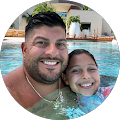

Want evidence-based care that fits your life? Louisville Addiction Center’s Virtual Outpatient Services bring substance use and mental health treatment to you over secure telehealth.
You can schedule daytime or evening visits and receive weekly individual therapy, psychiatric evaluations, and medication management as needed, ensuring clinical continuity and support without the commute.

Virtual outpatient treatment eliminates common barriers, enabling you to access high-quality care without disrupting your daily life. With virtual outpatient addiction treatment and telehealth outpatient therapy, you can access services from anywhere in the state, reducing travel time, childcare challenges, and work disruption.
We offer both day and evening sessions, allowing shift workers, parents, and individuals with irregular schedules to access care outside the usual 9–5 hours. You’ll keep the same licensed clinicians whether you meet virtually or in person, so your therapy, medication management, and psychiatric care all stay coordinated and consistent.
Telehealth also promotes privacy and comfort. You meet with clinicians from a safe, chosen space while preserving evidence-based care (therapy, medication management, and psychological evaluation) delivered over a secure, HIPAA-compliant platform.
For many people, virtual care is a practical and clinically sound way to initiate or maintain recovery without compromising quality or continuity of treatment.
This program is designed for people who need accessible, structured outpatient care delivered remotely.
Typical candidates include people with mild-to-moderate substance use disorders who benefit from weekly, clinician-led therapy and medication follow-up; individuals with co-occurring or primary mental health concerns who need psychiatric evaluation and integrated treatment; shift workers, caregivers, and rural residents who face transportation or scheduling barriers; and people stepping down from higher-intensity care who require ongoing therapy and med management while they reintegrate at home.
If you need consistent one-to-one clinical time but can’t attend daytime in-person programming, Virtual Outpatient Services provide a practical alternative with flexible scheduling, weekly individual sessions, and coordinated clinical oversight to keep your recovery on track.
Below are the core components of Louisville Addiction Center’s Virtual Outpatient Services. Each piece of care is delivered via secure telehealth by licensed clinicians and designed to work together, integrating therapy, medication management, and psychiatric evaluation with flexible scheduling and clear care coordination.
Weekly individual therapy is the clinical backbone of our virtual program.
Sessions are scheduled as 45–50 minute secure video visits with a licensed clinician and use evidence-based approaches such as Cognitive Behavioral Therapy (CBT), relapse prevention strategies, and Motivational Interviewing to address substance-use patterns and co-occurring symptoms.
Goals are individualized: treatment planning, trauma-informed work where indicated, skill building for cravings and triggers, and relapse-prevention planning tied to real-life practice.
Weekly is the baseline cadence, and clinicians may adjust the frequency as needed, depending on clinical requirements (for example, more frequent sessions during transitions or stabilization).
Technical requirements are straightforward: a smartphone, tablet, or computer with a camera/microphone, a reliable internet connection, and a private, distraction-free room during sessions. Our team will help you test the platform before your first appointment and provide tips to preserve privacy and engagement.
Medication management over telehealth is straightforward and practical: your first visit covers your medical history, current symptoms, and what has or hasn’t worked for you in the past.
Follow-ups focus on adjusting doses, monitoring for side effects, and ensuring that any medications are actually effective, while your clinician coordinates prescriptions and maintains remote supervision.
If urine drug testing or laboratory monitoring is required, we coordinate with local labs or in-person partners and review results as part of virtual visits.
Prescription handling follows clinical and legal guidelines. Clinicians document assessments, provide electronic prescriptions when appropriate, and schedule timely refill or monitoring visits as needed.
For urgent medication questions, the team provides triage instructions and after-hours contact options. In emergencies, you’ll be directed to local emergency services.
If a medication (including certain MAT options) requires in-person evaluation or local dispensing, admissions will explain how we coordinate with nearby providers and pharmacies to ensure continuity.
A virtual psychiatric evaluation is a comprehensive, clinician-led assessment that clarifies diagnoses, assesses risk, and produces a medication and treatment plan.
Conducted by a psychiatrist or psychiatric nurse practitioner via secure video, the evaluation covers symptom history, psychiatric and medical history, substance use patterns, and current stressors. The prescriber collaborates with your therapy clinician to integrate medication recommendations with psychotherapy goals.
The evaluation typically concludes with a written treatment plan that may include medication recommendations, monitoring schedules, safety planning, and referrals (for labs, in-person care, or higher levels of care if indicated).
Follow-up psychiatric visits are scheduled based on the plan to track response and adjust treatment as needed.
We recognize that life doesn’t fit a 9–5 window, so virtual care offers daytime and evening appointment blocks to accommodate shift workers, parents, and people with irregular schedules.
During intake, you’ll choose your preferred day or evening blocks, and the care team will reserve recurring weekly slots when possible. If you miss a session, ask about telehealth make-ups or clustered scheduling to minimize travel and interruption.
If you need help after hours, clinicians will provide clear crisis instructions and tell you how to access immediate support. However, virtual services aren’t a replacement for emergency care. If you’re in imminent danger or need urgent medical attention, call 911 or go to your nearest emergency room.
During intake, the team will walk you through on-call procedures and share local crisis resources that match your area.
Virtual care is coordinated care. Your virtual clinician collaborates with the same clinical team that provides in-person services when needed, ensuring that treatment goals, medication plans, and progress notes remain aligned and consistent.
We arrange local referrals for labs, urine testing, in-person medical exams, or higher levels of care (detox, PHP, residential) and provide warm handoffs whenever possible. That continuity preserves gains made in therapy and reduces fragmented care across providers.
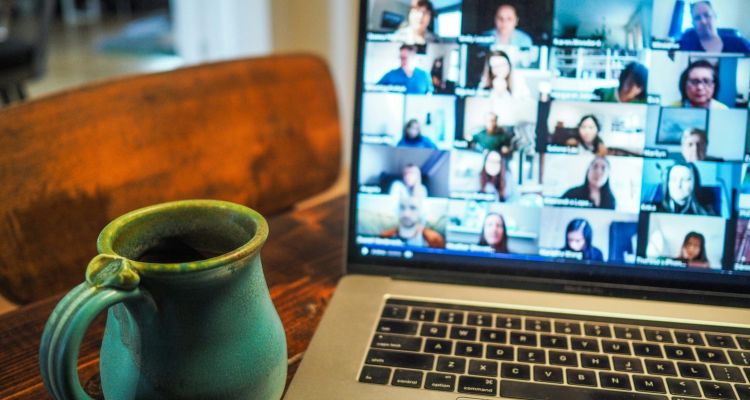
We utilize a secure, HIPAA-compliant telehealth platform, and our staff will guide you through account setup, login, and a brief test call before your first appointment.
You’ll receive instructions on creating a private space (with a closed door, headphones, and minimal interruptions) and simple troubleshooting tips for common audio/video issues.
If you need technical assistance, our team is available to help by phone or through a guided test session.
Before care begins, you’ll complete an informed-consent process that explains telehealth limits, data privacy, and how prescriptions and lab coordination are handled.
For safety, clinicians complete routine risk assessments and document emergency contacts.
We verify benefits for telehealth services to ensure you know your coverage before starting care. Call admissions at 502-586-4554 or complete the online insurance form to request a benefits check and a personalized cost estimate.
Typical pay options include insurance and self-pay. If your organization offers sliding-scale or copay assistance, we’ll explain the available options. Many plans cover telehealth services, but coverage varies, so always confirm with your insurer.
Regarding scheduling, we offer same-day or next-day intake appointments when clinically appropriate, and have daytime and evening appointment blocks available. During intake, you’ll pick recurring weekly therapy slots (day or night) that fit your schedule.
A single conversation can launch your recovery journey. Dial 502-586-2433 to speak with an admissions specialist 24/7, or complete the form on our website for instant answers.
Unsure about costs? Click Verify Your Insurance to see real-time coverage details in under five minutes.
Once we’ve verified your coverage, we can often get you started as soon as today—or tomorrow at the latest—if that’s the best clinical move. Pick up the phone or hop on chat; your call is private, quick, and could be the first step toward real relief.
A telehealth-based program offering SUD and primary mental health treatment that may include weekly one-to-one therapy, psychiatric evaluation, and medication management delivered by licensed clinicians.
Yes, a smartphone, tablet, or computer with a camera and microphone, a reliable internet connection, and a private, quiet place to talk. We’ll test your setup before the first session.
Yes, we use a HIPAA-compliant platform. Staff will explain privacy protections and consent procedures during the intake process.
Medication management is available via telehealth when clinically appropriate. Admissions will confirm availability and coordinate any required in-person lab tests or local pharmacy prescriptions as needed.
We offer daytime and evening blocks to accommodate different schedules; please select your preferred time during the intake process.
Weekly one-to-one therapy is the baseline; frequency can be adjusted based on clinical need.
Many insurers cover telehealth services, but coverage varies. For a benefits check, please call our center or contact your plan directly.
If you are in immediate danger, call 911 or go to the nearest ER. For non-emergency crisis help, your clinician will provide local crisis lines and urgent referral options.
We coordinate warm handoffs to local in-person providers, labs, or higher levels of care when needed.
Call admissions or complete the online contact/insurance form to request a telehealth intake.
Get Family Support Now
We understand addiction affects the whole family. Our comprehensive family program helps rebuild trust and restore relationships.
Weekly Family Therapy Sessions
Educational Workshops
Support Groups
Communication Skills Training
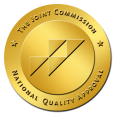

American Psychiatric Association. (2020). Telepsychiatry and COVID-19: Update and resources. https://www.psychiatry.org/psychiatrists/practice/telepsychiatry
Bashshur, R. L., Shannon, G. W., Bashshur, N., & Yellowlees, P. M. (2016). The empirical foundations of telepsychiatry: A review of the evidence. Psychiatric Services, 67(5), 493–500. https://doi.org/10.1176/appi.ps.201500283
Center for Connected Health Policy. (2022). State telehealth laws and reimbursement policies report. https://www.cchpca.org
Davis, C., & Samuels, E. A. (2020). Continuing opioid addiction treatment during COVID-19—Telehealth and beyond. The New England Journal of Medicine, 382(23), 2285–2287. https://doi.org/10.1056/NEJMp2003539
Hilty, D. M., Ferrer, D. C., Parish, M. B., Johnston, B., Callahan, E. J., & Yellowlees, P. M. (2013). The effectiveness of telemental health: A 2013 review. Telemedicine and e-Health, 19(6), 444–454. https://doi.org/10.1089/tmj.2013.0075
National Institute on Drug Abuse. (2021). Principles of drug addiction treatment: A research-based guide (3rd ed.). https://nida.nih.gov/publications/principles-drug-addiction-treatment-research-based-guide-third-edition
Shore, J. H., Yellowlees, P., Caudill, R., Johnston, B., Turvey, C., Mishkind, M., Krupinski, E., Myers, K., Shore, P., Kaftarian, E., & Hilty, D. (2018). Best practices in videoconferencing-based telemental health. Telemedicine and e-Health, 24(11), 827–832. https://doi.org/10.1089/tmj.2018.0237
Substance Abuse and Mental Health Services Administration. (2021). Telehealth for the treatment of serious mental illness and substance use disorders. SAMHSA Publication No. PEP21-06-02-001. https://store.samhsa.gov/product/PEP21-06-02-001

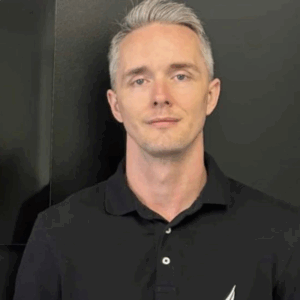

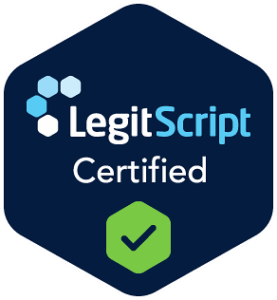
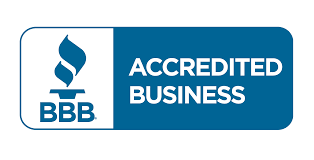




Centers for Disease Control and Prevention. (2025, June 9). Heroin. Overdose Prevention. U.S. Department of Health & Human Services. Retrieved August 22, 2025, from https://www.cdc.gov/overdose-prevention/about/heroin.html
Centers for Disease Control and Prevention. (2025). Understanding the opioid overdose epidemic. Overdose Prevention. U.S. Department of Health & Human Services. Retrieved August 22, 2025, from https://www.cdc.gov/overdose-prevention/about/understanding-the-opioid-overdose-epidemic.html
Centers for Disease Control and Prevention, National Center for Health Statistics. (2025, March 17). FastStats – Drug overdoses. Retrieved August 22, 2025, from https://www.cdc.gov/nchs/fastats/drug-overdoses.htm
Kentucky Office of Drug Control Policy & Kentucky Injury Prevention and Research Center. (2025). 2024 Kentucky drug overdose fatality report. Commonwealth of Kentucky. Retrieved August 22, 2025, from https://odcp.ky.gov/Reports/2024%20Drug%20Overdose%20Fatality%20Report.pdf
Centers for Disease Control and Prevention. (2025, August 7). SUDORS dashboard: Fatal drug overdose data. U.S. Department of Health & Human Services. Retrieved August 22, 2025, from https://www.cdc.gov/overdose-prevention/data-research/facts-stats/sudors-dashboard-fatal-overdose-data.html
Kentucky Justice & Public Safety Cabinet. (2023). Gov. Beshear: Overdose deaths decline for second-straight year. Commonwealth of Kentucky. Retrieved August 22, 2025, from https://justice.ky.gov/News/Pages/24overdosefatalityreport.aspx









Get Family Support Now
We understand addiction affects the whole family. Our comprehensive family program helps rebuild trust and restore relationships.
Weekly Family Therapy Sessions
Educational Workshops
Support Groups
Communication Skills Training


Hear directly from those who have walked the path to recovery. Our patients’ stories highlight the compassionate care, effective programs, and life-changing support they’ve experienced. Let their journeys inspire you as you take your first steps toward healing.
Louisville Addiction Center is helping people in Kentucky overcome addiction and mental health challenges.






